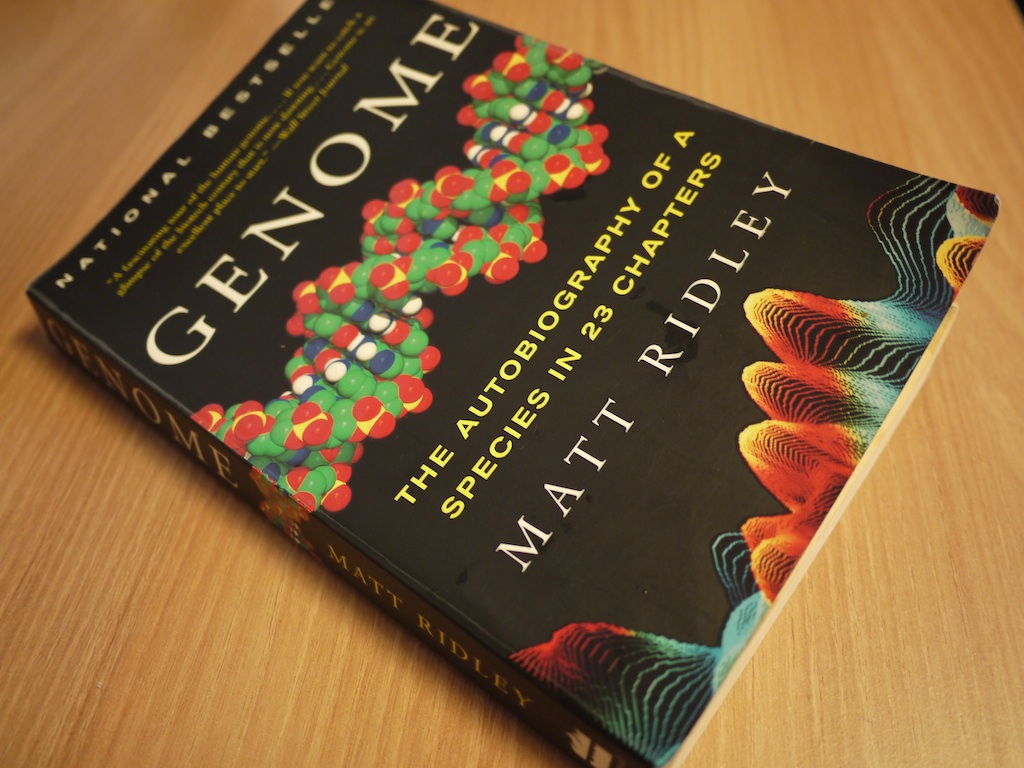The Cannabis Evolution Project did an amazing job sequencing thousands of strains of cannabis and displaying the resulting genetic data. Take a look at the results:
And I recommend watching some of the Cannabis Science Pub – Feb 2016

The Cannabis Evolution Project did an amazing job sequencing thousands of strains of cannabis and displaying the resulting genetic data. Take a look at the results:
And I recommend watching some of the Cannabis Science Pub – Feb 2016
In anthropology, biology, book, dna, genome, history, Savnte Pääbo, science
The ability to take a bone from a Neanderthal who lived tens of thousands of years ago and extract genetic information about that individual boarders on the unbelievable. Yet, if you read Savnte Pääbo’s book, Neanderthal Man: In Search of Lost Genomes, you will find out how such an achievement was made possible. The book provides a well written account of the journey Pääbo and his team took to ensure that our society would be able to learn about our ancient biological relatives — the Neanderthal, and more recently, the Denisovan.
My own genome, according to 23andMe has an estimated 2.8% from the Neanderthal genome — putting me in the 65th percentile. My father has an estimated 3.0%, which puts him in the 87th percentile. Entire DNA composition posted here. Even though I think I will have a low percentage, I hope 23andMe decides to include the Denisovan estimate in the future.
Sue Armstrong’s new book, p53: The Gene that Cracked the Cancer Code, is a fascinating summary of the many people and discoveries which led to our modern knowledge about p53. The book goes into detail about the conceptual struggles and breakthroughs which occurred over a period of several decades. The path to our current understanding was not linear and still continues to be a challenge. The best part about these accounts is the spirit and language with which Armstrong writes. She transforms a subject heavy with biological jargon into a great tale accessible to anyone with a general understanding of biology and genetics.
The book mentions several possible paths for the future of cancer therapy. I think the most interesting are those of prevention and finding a molecular band-aide. The efforts at cancer prevention should really be encouraged and insurance companies should start requiring yearly screenings. If we can achieve rates of discovery around 50-75%, that is solving half the problem. A molecular approach to stabilizing the p53 mutant sounds, to me, like an optimal solution. For an example, see this paper. The discovery of molecules which could safely enter the body and stabilize the mutant p53 — making it behave normally — would be a discovery of a lifetime.

On July 7, 2013
In anthropology, biography, biology, book, carl zimmer, dna, education, evolution, genome, matt ridley, science
I started started reading Genome: The Autobiography of a Species in 23 Chapters, my first time reading anything by Matt Ridley. Ridley knows how to synthesize a great non-fiction novel from dry scientific facts. In this regard, I think he is similar to Carl Zimmer.
The Meteorite (Chondrite) and its Organisms – Otto Hahn
October 12, 2019
Evolution from Space – Fred Hoyle and Chandra Wickramasinghe
May 28, 2019
From Virus to Cosmology – Fred Hoyle
January 9, 2019
Massive Crater and Younger Dryas
January 2, 2019
Microfossils and Biomolecules in Meteorites – Dr. Richard B. Hoover
November 12, 2018
Casual Randall Carlson
September 20, 2018
Daniel Sheehan
September 8, 2018
Dunbar’s Law and Economic Relationships
August 12, 2018
Scale – Geoffrey West
August 12, 2018
Mastering Bitcoin – Andreas M. Antonopoulos
August 12, 2018